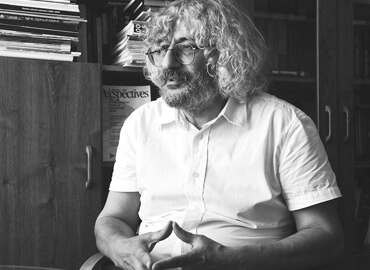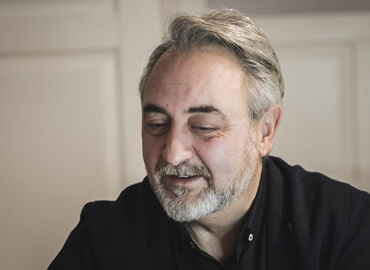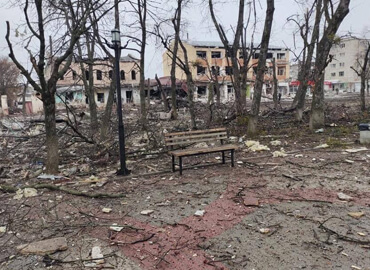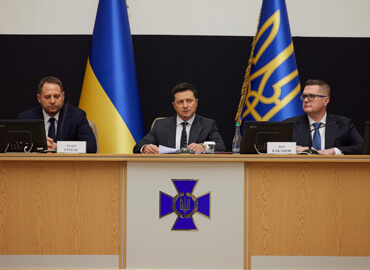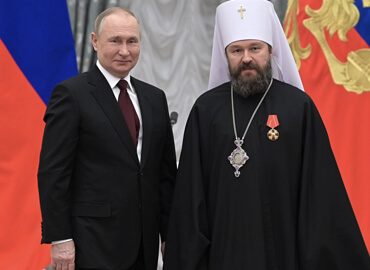Since Vladimir Putin first became the de facto ruler of Russia while former President Boris Yeltsin’s health declined in the latter half of 1999, Belarus has been repeatedly called a testing lab for authoritarian practices. Once successfully tried on Belarusians, such policies would be imposed on Russians. This pattern pertained to the consolidation of power, the marginalizing political forces, suppressing independent media, developing a massive propaganda machine, and attuning other such mechanisms of control.
This Belarus-Russia connection is not necessarily unique.
Dictators are keen to learn from each other while pursuing greater power over weakened societies and isolated people.
Even though dictatorships inevitably fall, on the path to their ultimate demise, they destroy people’s lives, economies, and societies.
However, Belarus to Russia is more than a friendly dictatorship. It is an ancient cradle of a civilization that Moscow, which came to the stage several centuries later, for centuries fought to occupy and appropriate its heritage to pump up own legitimacy. Along with Ukraine, controlling Belarus became the grounds for Russia to call itself a European country.
This explains why Russia has been so invested in Alexander Lukashenko’s rule since he first became the president of Belarus after it restored independence in 1991. Vehemently pro-Russian and disdainful of everything Belarusian, Lukashenko has enjoyed support from the Kremlin every time he needed it. He is literally the only foreign ruler who gets away with publicly humiliating Putin, who chooses to endure such insults out of fear of losing this civilizational and geopolitical connection.
Now Belarus is setting an example of a stubborn and successful challenge to openly forged elections in favor of a seemingly irreplaceable ruler. Considered for decades a Soviet time machine – tame, apolitical and apathetic – Belarus has unexpectedly revealed immeasurable amounts of public energy, will, and passion for the universal values of freedom and respect for human dignity.
Early signs hinted that the presidential campaign would be different, and three weeks after the votes were cast, Belarusians are still on the streets, defying the threats of the ever-so repressive state machine. While ordinary people effectively self-organize and demonstrate unmatched solidarity, compassion, and resilience in the face of ultimate adversity, Lukashenko routinely makes missteps every and instead of trying to pacify the situation and fix his mistakes, he lies to, insults, and threatens his own people.
On August 27, Putin revealed that following a request from Lukashenko, he had prepared a Russian law enforcement reserve unit to send to Belarus “if the situation gets out of control”. This Lukashenko-Putin pact has moved the internal political crisis in Belarus into an area that is contradictory to international law and threatens Belarus existence as a sovereign independent nation.
This controversial and explosive announcement has many facets to it and sends threatening messages in many directions, including to Belarus’ peaceful protesters, to an ever underprepared and hesitant West, to all Russian neighbors, and to Lukashenko himself. But the most important recipient of this message could be the Russian people. This threat, spoken by seemingly relaxed and confident Putin, also inadvertently reveals his ongoing concern that Russians are taking note of the success of Belarusian protests. That, in spite of all the previous futile attempts, Russians might think that challenging the organs of power is still not a bad idea.
It is far from certain that Putin would deploy the forces to Belarus. The complications of such a decision promises to be significant with all the recipients mentioned above responding in their own way. It could also be very costly for Russia. However, this announcement makes Putin’s agitation about his own political future look obvious.
Belarusians have quite incredulously found a key to cracking the monolith of a dictatorship – a development which in due time will attract global attention as a fascinating political case study. But if Belarus has ever been considered a testing ground for governing concepts that would later migrate to Russia, for Putin this uprising means that he might be facing a very uncertain reelection campaign in 2024 – exactly when he thought that his lifetime presidency was a sure bet.
***
Valery Kavaleuski is a former Belarusian diplomat specializing in Belarus-US political affairs and iSANS expert.
***
This article is also available in New Europe.







